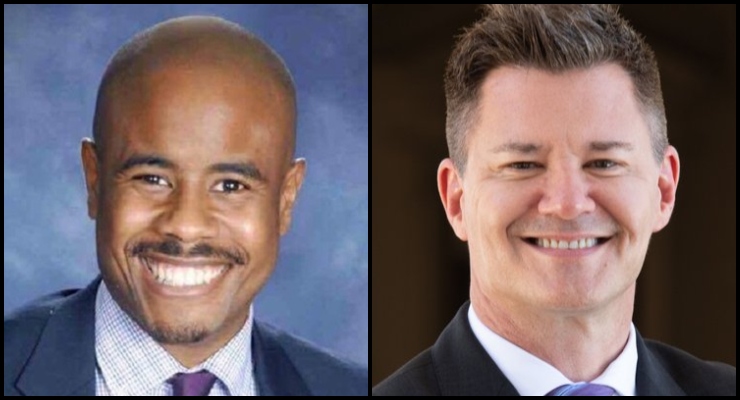
The City Council is scheduled to receive information on a recent Supreme Court decision that has significant implications for how cities, including Pasadena, can manage homelessness.
The June 28 Grants Pass ruling reverses a lower court’s decision that found the City of Grants Pass’s ordinances unconstitutional.
As a result of this new ruling, local governments can now enforce regulations against public sleeping and camping, even in cases where shelter availability is inadequate.
Some local residents oppose the ruling.
“The Grants Pass approach, which criminalizes homelessness, has no place in our city,” said local activist Brandon Lamar in an opinion piece written for Pasadena Now. “It is a regressive, inhumane strategy that does nothing to address the root causes of homelessness, and adopting such a model would be a grave injustice to our most vulnerable neighbors.”
But others claim the City should begin taking action to protect both its housed and unhoused residents.
“The City Council should reaffirm its long-standing ordinances against public camping and obstructing rights of way because it protects and helps everyone – housed and unhoused. Neighboring cities are doing so and are beginning to see the results. Anything short continues an unworkable, costly, and unsustainable situation that puts everyone at risk,” said resident and City Commissioner Kevin Litwin.
City staff will provide detailed information and answer questions on how Pasadena can integrate this ruling into its ongoing homelessness strategies during a meeting scheduled for Monday.
The Case
The case arose when a group of unhoused individuals challenged Grants Pass’s ordinances that banned camping and overnight parking in city parks. The ordinances included escalating fines and criminal penalties for violations and restricted the use of protective items such as sleeping bags and cardboard.
In a 6-3 decision, the Supreme Court, led by Associate Justice Nell Gorsuch, overturned the Ninth Circuit’s ruling that prevented enforcement of the ban. The majority opinion argued that the ordinances did not constitute cruel and unusual punishment because they regulated behaviors rather than punishing the person’s status of being unhoused.
“Homelessness is complex,” Gorsuch said in the Court’s opinion. “Its causes are many. So may be the public policy responses required to address it. At bottom, the question this case presents is whether the Eighth Amendment grants federal judges primary responsibility for assessing those causes and devising those responses. It does not.”
Conversely, Associate Justice Sonia Sotomayor, along with two other justices, dissented. They argued that penalizing individuals for their status of homelessness inherently punishes those without shelter options.
The dissent highlighted that the intent behind Grants Pass’s ordinances seemed to be to drive unhoused individuals out of the city.
On Monday a report will be presented to the City Council outlining the Supreme Court’s decision, related state legislation on conservatorship, recent motions by the Los Angeles County Board of Supervisors, and existing city programs.
The City Council could provide guidance on how to align local policies with the new legal landscape.
What’s Been Said
The item originally came up at a City Council meeting in July. It was only discussed briefly because it was not agendized. State law prevents Councilmembers from fully discussing items not posted in the agenda.
“We have to have the ability to preserve the quality of life in our commercial and residential and recreational areas, and it can be a trigger now, hopefully, for what we really need here, which are state and federal programs and resources to help these people because the truth is the better job we do,” said Vice Mayor Steve Madison. “We’re not going to reduce the unhoused in Pasadena. We’re going to attract more because our neighbors are not doing as much as we are. And that’s just not right.”
Madison said at that time had asked City Manager Miguel Márquez to consider different approaches to implementing the meeting.
Mayor Victor Gordo cautioned that the decision should not be abused and pointed to the need to address root causes like mental health and substance disorder, but added that the City has “a responsibility to maintain a healthy community for people in general.”
Not every Councilmember was supportive of the Court’s decision.
Councilmember Jason Lyon said the Supreme Court could not have gotten it more wrong in its ruling.
“It absolutely criminalizes homelessness and there was a much more reasoned center path to take the same way we take with the First Amendment where there could be reasonable time, place, and manner restrictions on outdoor sleeping. But to allow municipalities to criminalize a basic biological need, I think is unconscionable. And so I, for one, will not be a vote for taking our policy in that direction.”
Councilmember Jess Rivas also said she too believes the ruling criminalizes homelessness.
“I think it’s important to distinguish between Grants Pass and the conservatorship issue and making sure folks are able to get the mental health care that they need, when maybe they aren’t willing to accept it,” Rivas said. “And I feel like those are two distinct issues, very closely related, but I feel like Grant’s Pass does criminalize homelessness.
City Law
In July, Gov. Gavin Newsom issued an executive order issued requiring state agencies to prioritize clearing encampments that pose safety risks in their jurisdictions.
Despite the order. local governments still have the power to decide how to deal with unhoused populations in their respective cities.
The City’s municipal code, as well as state law, prohibit lodging in public places. The City’s municipal code provides that no person shall “camp, erect, maintain, or occupy any tent, lodge, structure, temporary or makeshift shelter, or unattended installation or display in any park or upon the grounds” of the civic center, libraries, or other municipal buildings.
Any person who “lodges in any building, structure, vehicle, or place, whether public or private, without the permission of the owner or person entitled to the possession or in control of it” is guilty of a misdemeanor.
City prosecutors filed criminal charges for those offenses until 2018. Since then, prosecutors have generally refrained from charging these violations due to an opinion by the Ninth Circuit Court of Appeals.
PORT and HOPE
Volunteers counted 556 people living on the streets during the last Homeless Count.
The City of Pasadena has bolstered its response to homelessness through two key programs: the Pasadena Outreach Response Team (PORT) and the Homeless Outreach Psychiatric Evaluation (HOPE) Team, which work collaboratively to address the needs of homeless people.
The Pasadena Outreach Response Team (PORT) is a multi-agency initiative involving the Pasadena Public Health Department, Pasadena Fire Department, Huntington Health, and Union Station Homeless Services.
The team includes a program coordinator, a social worker, two firefighters, two peer outreach navigators, and a registered nurse. Operating Monday through Friday from 8:00 a.m. to 4:30 p.m., PORT responds to non-violent assistance calls, offering food, transportation, and other resources.
When a homeless person agrees to participate, PORT provides comprehensive services, including housing navigation, mental and physical health assessments, and referrals to primary care, dental care, mental health services, substance use treatment, and more. If an individual declines immediate assistance, PORT maintains engagement through periodic outreach to encourage future participation.
Formed in 2002, the HOPE Team is a partnership with the Los Angeles County Department of Mental Health. The team includes Pasadena police officers and mental health clinicians who respond to emergency mental health crises and proactively seek out individuals in need of services. HOPE Team members conduct outreach that includes offering housing, shelter, drug rehabilitation referrals, and hygiene aids.
The HOPE Team consists of three units, each comprising a Pasadena police officer and a mental health clinician from the county. These teams are trained in crisis intervention and negotiation and play a role in enforcing local laws related to public spaces. They work with various city departments and external agencies to conduct encampment clean-ups and ensure compliance with park regulations while respecting the rights of those experiencing homelessness.
Other Services
The Pasadena Public Health Department supports several programs aimed at reducing homelessness and recidivism. Proposition 47, funded by the California Board of State and Community Corrections, provides intensive case management and strengthens collaborations with service providers for educational support and job training. The United Mental Health Promoters team offers mental health referrals and case management and delivers training on Mental Health First Aid.
The Pasadena Library System, though its Central Library’s grant-funded Care Navigator position has ended, previously offered vital social services and is exploring options to reinstate such support upon reopening.
Pasadena Transit is also actively involved in addressing homelessness through partnerships with PORT and by installing mid-bench armrests to deter sleeping on bus benches. The Low Income Fare is Easy (LIFE) program provides free transportation to eligible individuals. Dial-A-Ride services have been utilized for emergency transportation, including during Hurricane Hilary, and efforts are ongoing to address the needs of those without permanent addresses who request this service.
On July 30, the County Board of Supervisors affirmed a “Care First” policy for encampment resolution. The County also placed Measure A on the November 5 ballot to increase its homelessness sales tax.
As cities navigate the post-Grants Pass landscape, legal challenges persist.
A new lawsuit filed by the American Civil Liberties Union of Washington argues that anti-camping ordinances violate state constitutional protections against cruel punishment, potentially foreshadowing similar challenges in California.


















